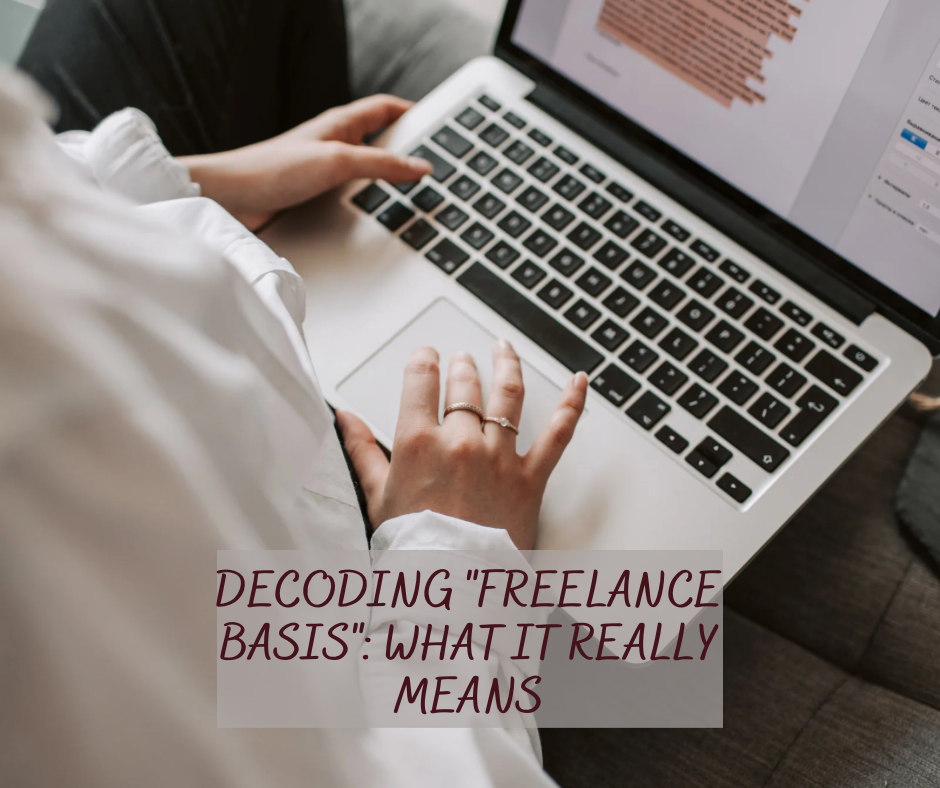The term “freelance basis” pops up frequently in today’s work landscape, but what does it actually signify? In essence, working on a freelance basis means operating as an independent contractor rather than a traditional employee. Let’s break down the key characteristics.

Decoding “Freelance Basis”: What It Really Means
1. Independence and Autonomy:
- Self-Employment: Freelancers are self-employed individuals who offer their services to clients on a project-by-project or contractual basis.
- Control Over Work: They typically have significant control over how, when, and where they perform their work, within the parameters of the agreed-upon project.
- Client Relationships: Freelancers manage their own client relationships, negotiating contracts, setting rates, and handling invoicing.
2. Contractual Agreements:
- Project-Based Work: Freelancing often revolves around specific projects or tasks with defined deliverables and deadlines.
- Contracts or Agreements: While not always formal, a clear understanding of the scope of work, payment terms, and deadlines is essential. This is often formalized through a contract or written agreement.
- No Long-Term Commitment: Unlike employees, freelancers aren’t bound by long-term employment contracts.Their engagements are typically for a defined period or project.
3. Financial Aspects:
- Self-Billing and Taxes: Freelancers are responsible for their own billing, invoicing, and tax obligations, including self-employment taxes.
- Variable Income: Income can fluctuate depending on the number of clients and projects secured.
- Expense Management: Freelancers often cover their own business expenses, such as equipment, software, and marketing costs.
4. Key Differences from Employment:
- No Employee Benefits: Freelancers generally don’t receive employee benefits like health insurance, paid time off, or retirement contributions.
- No Employer-Employee Relationship: The relationship is a business-to-business one, rather than an employer-employee relationship.
- Flexibility vs. Security: Freelancing offers flexibility and autonomy, but it may lack the job security and stability of traditional employment.
Who Works on a Freelance Basis?
A wide range of professionals work on a freelance basis, including:
- Writers and editors
- Graphic designers and web developers
- Photographers and videographers
- Marketing and social media specialists
- Consultants and project managers
- Software developers and programmers
In essence, “freelance basis” signifies a flexible, independent, and project-oriented way of working. It empowers individuals to take control of their careers and offer their skills to a diverse range of clients.
